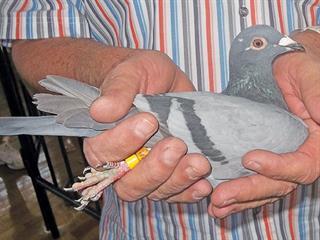The agriculture department’s micro-finance scheme aimed at helping subsistence farmers become small-scale entrepreneurs with the help of cheap loans has come under fire from ANC members for trapping beneficiaries in a vicious poverty cycle. D uring a parliamentary presentation on the Micro Agriculture Finance Scheme of SA (Mafisa) by the agriculture department, MP Salamuddi Abram said the high cost of loans disbursed through them, together with a lack of appropriate technical support, was a recipe for disaster.
Loans are usually about R28 000, charged at 8%, and disbursed through the Land Bank. bram said officials must be “brutally frank” and ask themselves if they honestly believe that there is hope for impoverished beneficiaries of Mafisa loans. He called for a reversion to the low interest rates white farmers had enjoyed though the Land Bank in the 1920s. “The old regime managed to do some things right, for example, low interest rates for loans to farmers,” he told parliament. It was therefore important not “to throw the baby out with the bath water”. Agriculture director general Masiphula Mbongwa said in the 1920s white farmers had been given equipment “almost free of charge”, but President Thabo Mbeki had instructed his department that although Mafisa was a state intervention in the market that sought to link the first and second economies, it must work within existing financial frameworks. Given current interest levels, Mafisa’s rate is highly subsidised and repayment terms are generous. Mafisa’s shortcomings include delays in disbursing loans because of administrative inefficiencies and a mindset among recipients that Mafisa payments are grants that don’t have to be repaid.
Since its launch in April 2006, over 6 000 loans amounting to R56 million were disbursed for a crop and stock production. Less than 15% have been repaid. N o mention was made of fraudulent activities picked up in Mafisa during its pilot in the Limpopo province. bram and other MPs were also critical of the quality of technical advice farmers received. MP David Dlali called for action to be taken against extension officers and service providers who failed to perform their duties or made blatant mistakes, such as planting maize in the wrong season. lali said the department had shown little improvement in performance since making a similar presentation in 2004 and urged Mbongwa to name and shame officials who were not up to scratch. Mbongwa said that the department would send its own standing internal audit team to investigate extension officers and service providers who neglected their duties, a trend especially noticeable in the North West. He also said the national roll-out had been delayed because of “problems in the Land Bank”, which has been rocked by financial scandals and a high turnover of CEOs and senior executives. – Stephan Hofstätter









